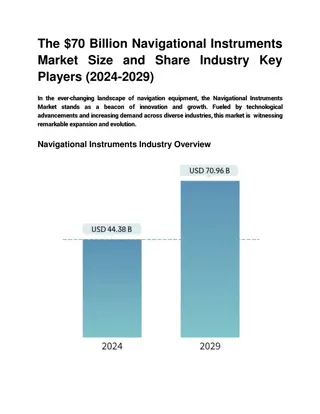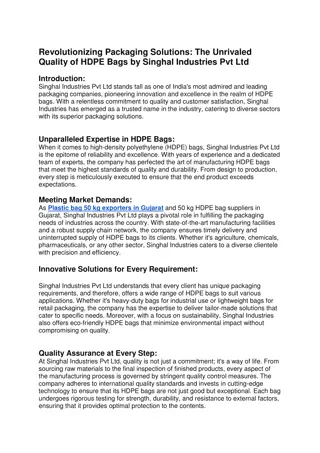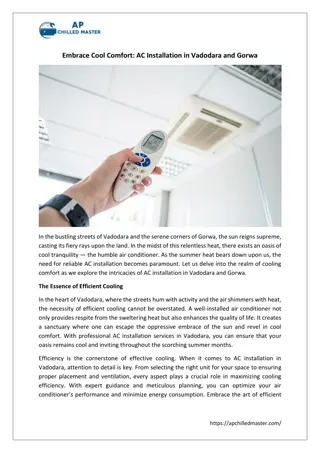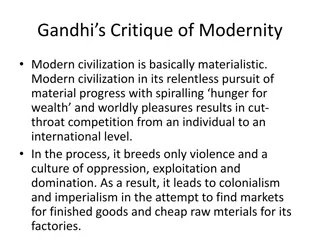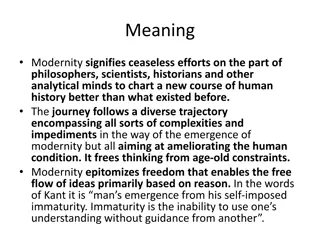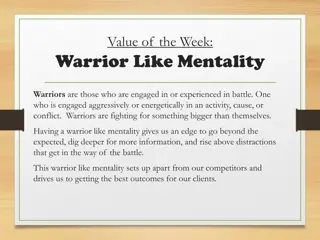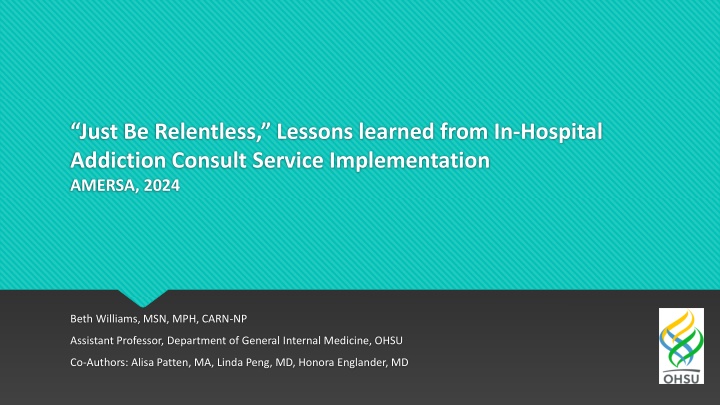
Lessons Learned from Addiction Consult Service Implementation
Explore the insights gained from the implementation of Addiction Consult Services (ACS) in hospital systems, focusing on the challenges and successes faced by ACS teams. This study delves into the strategies, barriers, and culture impacting ACS implementation based on interviews with ACS Champions.
Download Presentation

Please find below an Image/Link to download the presentation.
The content on the website is provided AS IS for your information and personal use only. It may not be sold, licensed, or shared on other websites without obtaining consent from the author. If you encounter any issues during the download, it is possible that the publisher has removed the file from their server.
You are allowed to download the files provided on this website for personal or commercial use, subject to the condition that they are used lawfully. All files are the property of their respective owners.
The content on the website is provided AS IS for your information and personal use only. It may not be sold, licensed, or shared on other websites without obtaining consent from the author.
E N D
Presentation Transcript
Just Be Relentless, Lessons learned from In-Hospital Addiction Consult Service Implementation AMERSA, 2024 Beth Williams, MSN, MPH, CARN-NP Assistant Professor, Department of General Internal Medicine, OHSU Co-Authors: Alisa Patten, MA, Linda Peng, MD, Honora Englander, MD
Disclosures I have no disclosures
Background Addiction consult services (ACS) improve care for hospitalized patients with SUD Evidence for improvement in care quality, treatment engagement, reduced mortality and readmissions Despite evidence for benefit, most hospitals do not provide hospital-based addiction care or have an ACS There is a lack of guidance around how to implement ACSs in hospital systems, particularly outside of academic medical institutions Our objective: to explore how ACS teams are doing what they are doing in the face of implementation barriers
Methods Semi-structured qualitative interviews of ACS Champions who implemented an ACS in a hospital system with the past 4 Years Recruitment via snowball sampling Interviews conducted via a virtual platform lasted ~60 minutes each Questions explored implementation and evolution of ACSs: Explored implementation and evolution of ACSs Staff and service delivery Strategic planning Barriers and facilitators to implementation Internal and external culture at site of implementation Reflexive thematic analysis to identify emergent themes and recurrent patterns in the data
Results: participants N=17 hospital ACS Champions 13 physicians, directors or founding members of hospital ACS 1 Nurse Practitioner Director of ACS 1 Social Worker, Program Manager of ACS 1 Registered Nurse, Director of Care Coordination for hospital 1 COO of hospital, ACS Champion
Results: setting Institutions N=11 8 academic medical centers, 3 community hospitals 10 urban, 1 rural Location of Institutions: Midwest: 4 Northeast: 2 West: 5
Results: emergent themes
Theme 1: Strategies Champions used to obtain hospital leadership buy-in without financial incentives or a clear path to generate revenue. Strategic Alignment It s knowing what s important for leadership and the organization and being able to explain why this is going to help with those initiatives... sometimes you just have to draw the lines and remind people or connect the dots. Strategies included: Needs assessment Presenting a business case Aligning with institutional strategic goals Obtaining support from influential stakeholders Ask and then ask again Persistence Convincing the powers that be that it s going to be worth it even if it s not going to make the hospital rich, and I think that that is the hardest thing I think the way you get through it is to just continue to bother people about it.
Theme 2: ACS Champion attributes Persistence, communication, and effective leadership I think it s just being able to straddle those worlds...you can t just be clinical to really be able to speak confidently to all parties I don t know where my white coat is, if I need it, if I m giving a talk or something, I ll go find it. I think just being able to take off some of that overly oppressive academic medicine mess and talk to patients, but also put that back on when you have to. Yeah. Just be relentless. Just don't get discouraged. Try to be optimistic, and then just keep fighting.
Theme 3: Champions accessed external support to successfully implement External support included formal tools/literature and informal support networks Have some mentors or peers to talk with and say, Keep going. This is normal. Here are some things that help. I think having the group of people that are doing this across the country, everyone being so supportive and positive, that has been a huge support.
Theme 4: ACS drives cultural change, which increases demand for services Change occurs through staff education and modeling quality care Change is slow and incremental I m reminding myself we can t change the culture overnight. It s important to have a good working relationship with the staff at the hospital, and maybe nudging them towards the culture that you want to move towards without making it extreme.
Theme 5: positive outcomes support sustainability Once ACS is integrated into hospital care, staff felt it was indispensable One of the things we identified quickly was how much the staff needed support because we went from, I hate my patients to well now I have tools because you guys are here. There has been so much business - because we re here now, patients tell other patients about it. [Patients spread the word]: I went here and I was treated really well, and they helped me .a lot of it is other physicians finding value because they don t have to deal with it. They could be like, just call [the consult service]. Just call
Discussion Barriers to ACS implementation are common and significant Our study is the first to demonstrate how champions are implementing ACS despite these barriers including: Accessing both formal and informal external support Fostering unique leadership skills necessary for success Harnessing less tangible outcomes (e.g. staff satisfaction) to demonstrate the need for ACS to executive leadership
Limitations and future research Small sample and inclusion of majority academic/urban hospitals may limit generalizability Future research could further explore implementation in rural/community hospitals and further explore executive leadership perspectives
Implications Hospital systems and leaders should facilitate ACS implementation through executive leadership support and funding Funding of formal technical assistance networks and leadership coaching could support champions implementing ACS in diverse settings Policy makers could enact financial incentives to reinforce hospital-based addiction care as the current standard of care
References McNeely J, Wang SS, Rostam Abadi Y, Barron C, Billings J, Tarpey T, et al. Addiction Consultation Services for Opioid Use Disorder Treatment Initiation and Engagement: A Randomized Clinical Trial. JAMA Internal Medicine. 2024;184(9):1106-15. doi:10.1001/jamainternmed.2024.3422 Englander H, Jones A, Krawczyk N, Patten A, Roberts T, Korthuis PT, et al. A Taxonomy of Hospital-Based Addiction Care Models: a Scoping Review and Key Informant Interviews. J Gen Intern Med. 2022. doi:10.1007/s11606-022-07618-x Danovitch I, Korouri S, Kaur H, Messineo G, Nuckols T, Ishak WW, et al. The addiction consultation service for hospitalized patients with substance use disorder: An integrative review of the evidence. J Subst Use Addict Treat. 2024;163:209377. doi:10.1016/j.josat.2024.209377 Wilson JD, Altieri Dunn SC, Roy P, Joseph E, Klipp S, Liebschutz J. Inpatient Addiction Medicine Consultation Service Impact on Post-discharge Patient Mortality: a Propensity- Matched Analysis. J Gen Intern Med. 2022;37(10):2521-5. doi:10.1007/s11606-021-07362-8 Englander H, King C, Nicolaidis C, Collins D, Patten A, Gregg J, et al. Predictors of Opioid and Alcohol Pharmacotherapy Initiation at Hospital Discharge Among Patients Seen by an Inpatient Addiction Consult Service. J Addict Med. 2020;14(5):415-22. doi:10.1097/adm.0000000000000611 Wakeman SE, Metlay JP, Chang Y, Herman GE, Rigotti NA. Inpatient Addiction Consultation for Hospitalized Patients Increases Post-Discharge Abstinence and Reduces Addiction Severity. J Gen Intern Med. 2017;32(8):909-16. doi:https://dx.doi.org/10.1007/s11606-017-4077-z Trowbridge P, Weinstein ZM, Kerensky T, Roy P, Regan D, Samet JH, et al. Addiction consultation services - Linking hospitalized patients to outpatient addiction treatment. J Subst Abuse Treat. 2017;79:1-5. doi:10.1016/j.jsat.2017.05.007 Marks LR, Munigala S, Warren DK, Liang SY, Schwarz ES, Durkin MJ. Addiction Medicine Consultations Reduce Readmission Rates for Patients With Serious Infections From Opioid Use Disorder. Clin Infect Dis. 2019;68(11):1935-7. doi:https://dx.doi.org/10.1093/cid/ciy924 King C, Collins D, Patten A, Nicolaidis C, Englander H. Trust in Hospital Physicians Among Patients With Substance Use Disorder Referred to an Addiction Consult Service: A Mixed- methods Study. J Addict Med. 2021;09:09. doi:https://dx.doi.org/10.1097/ADM.0000000000000819 Englander H, Collins D, Perry SP, Rabinowitz M, Phoutrides E, Nicolaidis C. "We've Learned It's a Medical Illness, Not a Moral Choice": Qualitative Study of the Effects of a Multicomponent Addiction Intervention on Hospital Providers' Attitudes and Experiences. J Hosp Med. 2018. doi:10.12788/jhm.2993 Hoover K, Lockhart S, Callister C, Holtrop JS, Calcaterra SL. Experiences of stigma in hospitals with addiction consultation services: A qualitative analysis of patients' and hospital- based providers' perspectives. J Subst Abuse Treat. 2022;138:108708.
Thank You! Special thanks to our study participants for the contribution of their invaluable time willbeth@ohsu.edu


